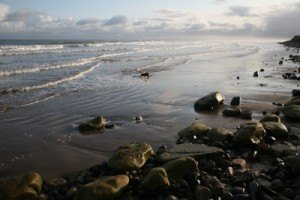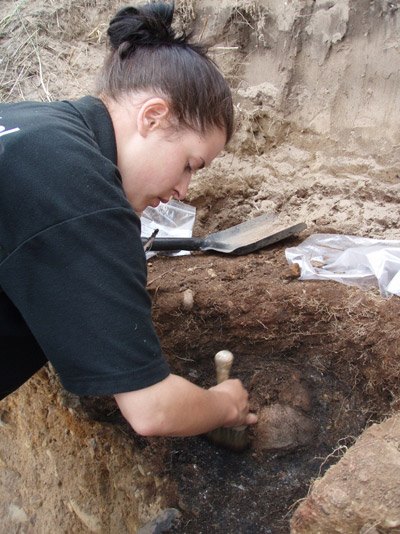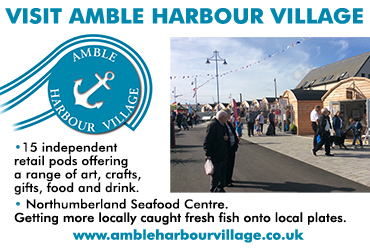Rare discoveries inspire archaeology on the beach
Mesolithic remains, an early Bronze Age cemetery and ancient peat beds are just some of the heritage wonders due to be excavated from the cliffs at Low Hauxley, thanks to a Heritage Lottery Fund (HLF) grant of £285,900.
The project ‘Rescued from the Sea’ run by the Northumberland Wildlife Trust, will engage a small army of volunteers to meticulously uncover the extremely rare and nationally important archaeological finds that are currently hidden within the cliff face. Local volunteers will be specially trained in the necessary skills to accurately record and preserve their findings. They will be trained in excavation skills, photography and small find recording amongst others.
The site is rapidly eroding with each high-tide, so the project has come to fruition just in time. According to the English Heritage funded North East Rapid Coastal Zone Assessment – the site is of high importance and extremely vulnerable. Mesolithic settlement sites, such as middens, hearths and structural remains, are very rare making these discoveries and this project all the more vital.
Informative and interactive classroom sessions will be offered to 400 school children to help them understand and get inspired by the array of history that surrounds them. A series of guided tours and talks will be provided ensuring as many people as possible have the chance to see and hear about the work taking place at Low Hauxley. Hard to reach audiences, including young offenders from HMP Northumberland, will also be given the chance to get involved with the activities including workshops and site visits.
Steve Scoffin, Northumberland Wildlife Trust’s Druridge Bay Development Manager said: “Without the HLF funding, this site would be lost to the sea, a part of our heritage gone before it was completely understood.
“This is a rare opportunity for professional archaeologists and enthusiastic volunteers to come together and we have to thank the local communities, Northumberland County Council and Natural England in particular for their fantastic support in making this happen.

“The project is not just about the archaeology and its context, but of people being inspired by, and working together to understand, their past and their landscape”
“The project should start in April or May and it will last 10 weeks. We really do want lots of people to be involved. There will be the opportunity for volunteers to be involved in digging, cataloguing and after care.
“The importance of this project to the Druridge Bay area cannot be underestimated. It is not just about the archaeology and its context, but of people being inspired by, and working together to understand, their past and their landscape, and particularly the contribution this can make to the local economy.”
Ivor Crowther, Head of the HLF North East, said: “’Rescued from the Sea’ will give people a fantastic insight into life in Northumberland through the ages. These exceptional finds will be carefully conserved and made accessible for everyone. The volunteers taking part will help shed light on the artefacts and piece together parts of our heritage that no one has seen before. We at the HLF are delighted to be a part of this special project and can’t wait to see the results.”
All finds and recordings will be archived at the Great North Museum.
If you would like to be involved, or to find out more, please contact Louise Chapman, Volunteer Co-ordinator for Northumberland Wildlife Trust













